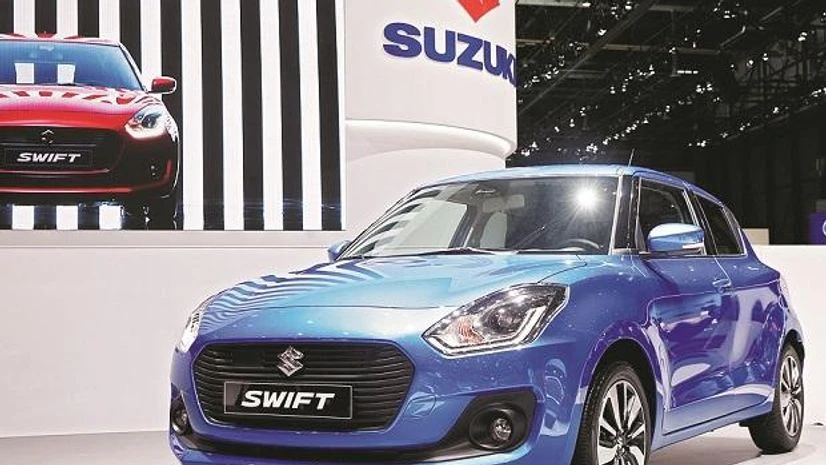Maruti Suzuki India (MSI) on Saturday said it expects an adverse impact on production at its two plants in Haryana and parent Suzuki's Gujarat plant in November on account of supply constraint of electronic components due to semiconductor shortage.
Terming the situation as quite dynamic, the country's largest carmaker noted in a regulatory filing that as per current estimates the total vehicle production volume across both locations in Haryana next month could be around 85 per cent of normal roll-out.
"Owing to a supply constraint of electronic components due to the semiconductor shortage situation, the company is expecting an adverse impact on vehicle production in the month of November'21 in both Haryana and its contract manufacturing company, Suzuki Motor Gujarat Pvt Ltd (SMG)," MSI said in a regulatory filing.
The company's production capacity at Gurgaon and Manesar plants in Haryana is around 15 lakh units per annum.
SMG Gujarat, which supplies vehicles exclusively to MSI, has an additional installed production capacity of 7.5 lakh units per annum.
The company had earlier stated that the total vehicle production volume across both locations in October could be around 60 per cent of normal production. It had noted that the vehicle production in September would be just 40 per cent of its normal output due to the shortage of semiconductor chips.
More From This Section
Earlier this week, MSI reported a 66 per cent year on year decline in consolidated net profit at Rs 487 crore in the second quarter ended September 30, 2021, impacted by the ongoing semiconductor shortage and increase in commodity prices.
The auto major could not produce around 1.16 lakh vehicles during the second quarter owing to the electronics component shortage mostly corresponding to the domestic models, the company had stated.
The company has more than 2 lakh pending customer orders at the end of the quarter for which it is making all efforts to expedite deliveries.
Semiconductors are silicon chips that cater to control and memory functions in products ranging from automobiles, computers and cellphones to various other electronic items.
The usage of semiconductors in the auto industry has gone up globally in recent times with new models coming with more and more electronic features such as bluetooth connectivity and driver-assist, navigation and hybrid-electric systems.
(Only the headline and picture of this report may have been reworked by the Business Standard staff; the rest of the content is auto-generated from a syndicated feed.)

)
